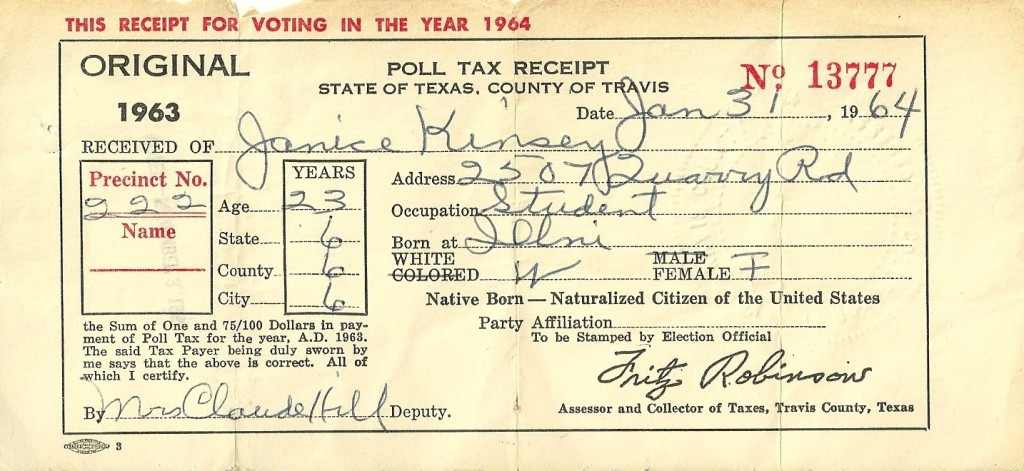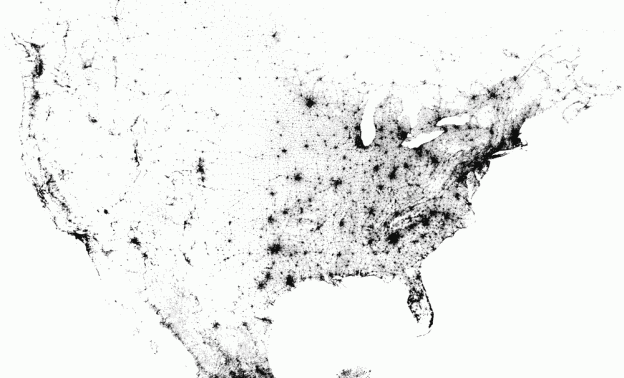Over the past few weeks there’s been some really valuable discussion about the proposal for DemocracyMap in the Knight News Challenge. Mostly this emerged from David Eaves’ piece in TechPresident which questioned the sustainability of the project, but I also wrote a guest post for the Open Knowledge Foundation blog describing the larger context that DemocracyMap exists within.
My last post responded to David’s concerns and attempted to dig deeper into some of the challenging questions surrounding the sustainability of civic technology projects. There were a number of tweets that distilled what I wrote such as Tech President’s Nick Judd saying, “Some things – like who your lawmakers are – you just shouldn’t have to pay to find out.” Philadelphia’s Chief Data Officer Mark Headd referred to it as “On the importance of access to public data and the dangers of over zealous contrarianism.” And I think David Moore from the Participatory Politics Foundation might be writing something too. The Sunlight Foundation’s Tom Lee went even further and did a great job of refining and expanding on my thoughts with a post of his own titled, Making Open Government Data Sustainable and TechPresident continued to discuss the project during a podcast with Micah Sifry, David Eaves, and Nick Judd.
I was a little frustrated to listen to the podcast and hear David continue to claim that the DemocracyMap proposal makes no mention of other efforts in this space. In reality, the proposal explicitly lists some it sees as having failed, links to a page with an even more complete list, and also mentions some of the other organizations working in this space which I hope to continue collaborating with.
It’s worth noting that one of the organizations doing the best work in this space is OpenNorth who is working on OpenNorth Represent, a Canadian counterpart to much of the work surrounding DemocracyMap. David Eaves is on the board of OpenNorth so his argument that something like Azavea Cicero should be left to itself rather than be threatened or complimented by others, even non-profit grant driven endeavors, is even more confusing when he you consider that he makes no mention of a similar project he’s associated with. In any case, I’ve been in discussion with the folks at OpenNorth for a while and as mentioned in my proposal, I hope to work with them and others more closely as this project moves forward. A huge focus of community collaboration in this space is around standards and OpenNorth has been a leader there. Standards are the only way we’ll be able to source data at scale and collaborate with one another effectively. See Popolo and Open Civic Data.
It’s true that I could have elaborated more on the successes and failures of other efforts and better articulated how DemocracyMap would be different, but at this stage I thought that the mentions were sufficient. Hopefully my earlier post on the OKFN blog and my response to David help provide some additional context around those topics, but I also hope to have the chance to elaborate further as the Knight News Challenge continues. This ongoing process brings me to something David discussed in the Tech President podcast that I think deserves much more recognition and consideration than it typically gets: one of the best aspects of the Knight News Challenge is the open process of developing and refining the proposals with multiple stages of public feedback and iterative improvements. In fact, I would go even further and say that the process of driving the creation of proposals is one of the most valuable things that the News Challenge does.
Hopefully it’s not too radical to claim that if you considered all the proposals submitted to the News Challenge that don’t make it as final grant recipients as a collective whole that their value would at least come close to equaling that which comes out of funding just one of the final projects. Obviously this is a hard thing to compare considering the creativity, critical thinking, and prototyping dispersed across those 800+ other proposals, but the News Challenge does compel a lot of thinking and making around all these projects. Even just dollar for dollar, I wonder if the Knight Foundation generates more useful stuff from all the proposals as a whole as it does from the final grantees. In fact, Knight may already be starting to think along these lines as evident by new efforts like the Knight Prototype Fund.
There are a number of parallels here with app contests and prize driven challenges in the context of government innovation. App contests have been a big part of the open government space for the past five years. I first started paying attention to them with Washington DC’s Apps for Democracy. In fact, the Open311 effort emerged out of DC’s second round of the Apps for Democracy contest. There was a lot of hype around app contests for a few years and while some are still going strong, there seems to be consensus that app contests don’t deliver as much value as people initially expect. Often this is because the contests are framed as delivering all sorts of useful new apps that will be sustained on their own, but that’s rarely the case. The only way for app contest to be successful in the long term is to carefully factor in sustainability whether that means helping to facilitate introductions to investors, or helping establish partnerships with relevant NGOs, or simply to have the government directly invest in ongoing development of the app. Even if sustainability isn’t totally factored in, app contests can generate a lot of great ideas and useful prototypes, but expectations should be set appropriately about the long term value that will come out of those.
In the case of the News Challenge, the intent is a little different because there’s such a singular focus on using the contest to narrow the proposals down to the final grant recipients. Yet I think there’s something to be said about considering the value of all the other proposals, especially given the point David emphasized: the process of public feedback really helps refine and iterate on the ideas. In fact, I think this is often more worthwhile than the app contest model since it can help guide an idea before a whole lot of work has been invested in building the app. In other words it can force you to articulate your hypothesis, demonstrate demand, and do something more lightweight like paper prototyping before real development. There’s a lot that could be done to better support all the proposals beyond the finalists, but I think the bare minimum that Knight could do is avoid outright discarding them.
While it’s true that the proposals from past News Challenges have been archived and are available online, none of this was done from the beginning with any consideration for permanent links. This means that the thousands of tweets and blog posts discussing the proposals are all broken each time the News Challenge starts anew. This was particularly noticeable last year because there were successive rounds of the News Challenge just a few months after one another, so it was really easy to see how quickly all the links to the proposals were getting broken. I’ve managed to assemble links to all the previous News Challenge submissions for DemocracyMap and it’s true that a Google search should still be effective in finding archived proposals, but all those links from social media and other sites (and with them all their Google page rank) are broken. This isn’t a hard problem to fix. For example, each year the News Challenge process could be hosted at a new subdomain like 2013.newschallenge.org which would still make it possible to use another website or platform to host the process as they did with Tumblr last year.
Another simple strategy to get better long term value out of the proposals is to encourage each one to include enough information for people to follow the project and stay engaged even if it doesn’t make it through as a finalist. I’d completely forgotten to include these basic details until advised by Ben Sheldon. Ben had experienced this problem with the Pepsi Challenge where people invested a lot in community engagement around the short-term process of the contest and ended up without a way to continue the engagement when the contest was over. This is particularly important if you submit a project to multiple contests over time and want to have a central place where you can continue to engage and grow your community even if the project isn’t selected within each individual contest.
How else has the kind of public process leveraged by the News Challenge helped drive the creation or evolution of new projects and what else could be done to better support that on into the future?

